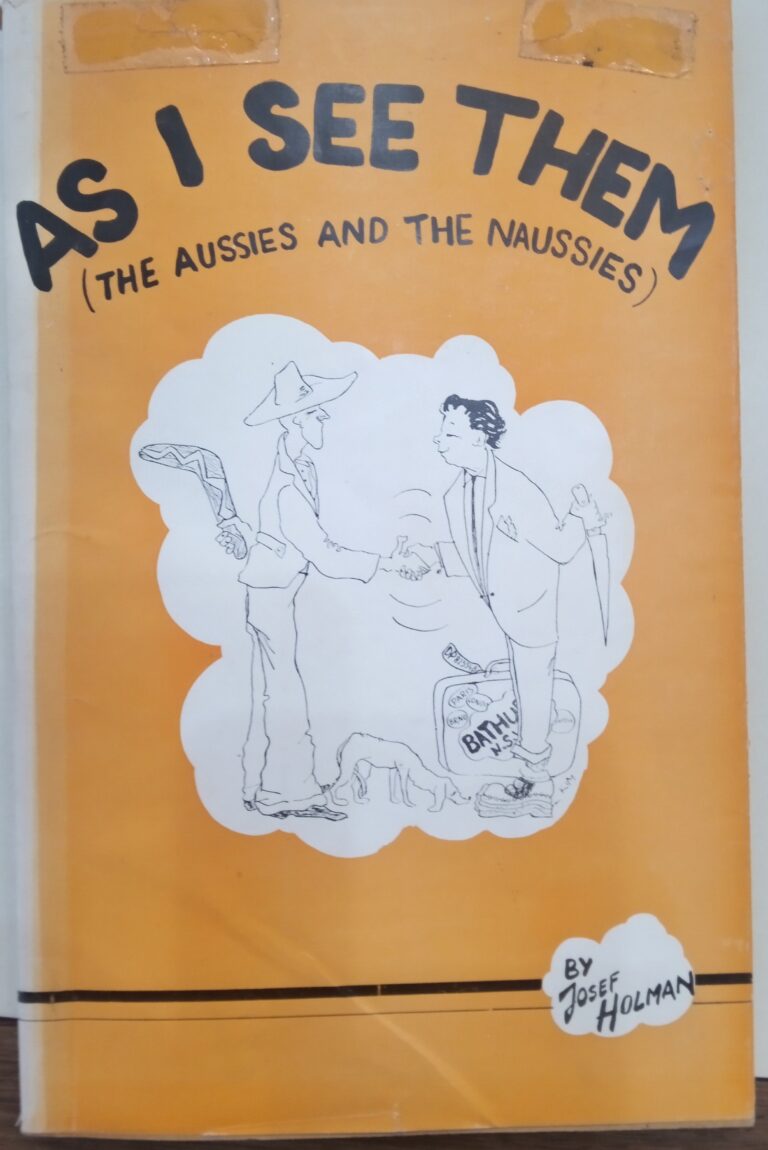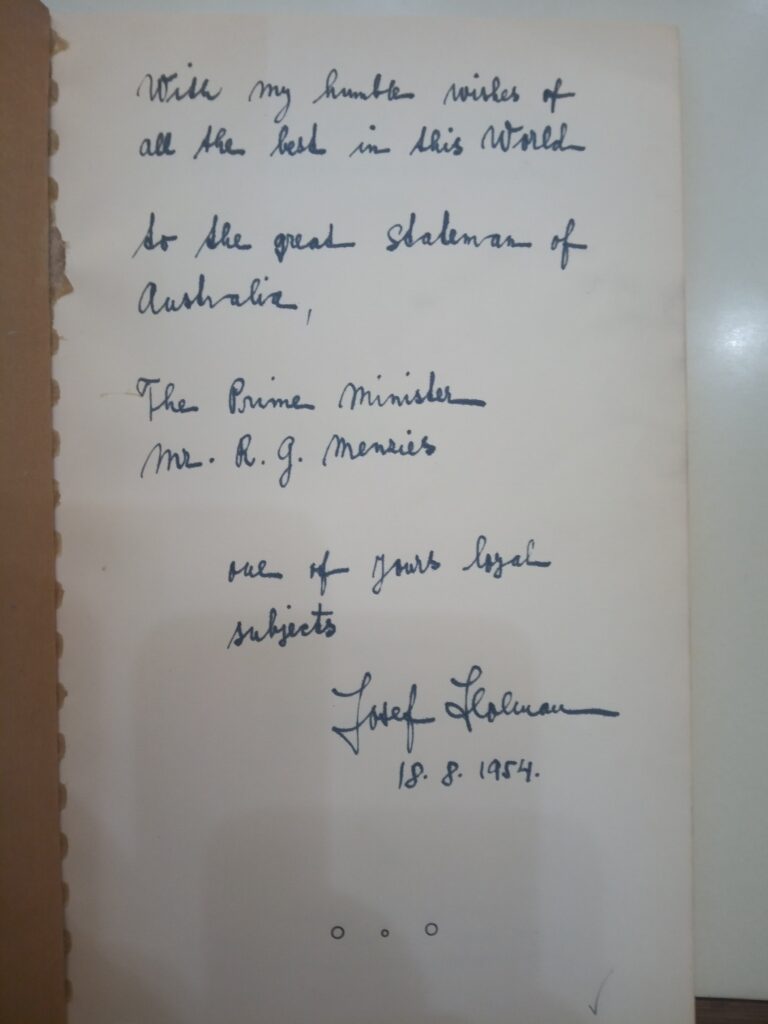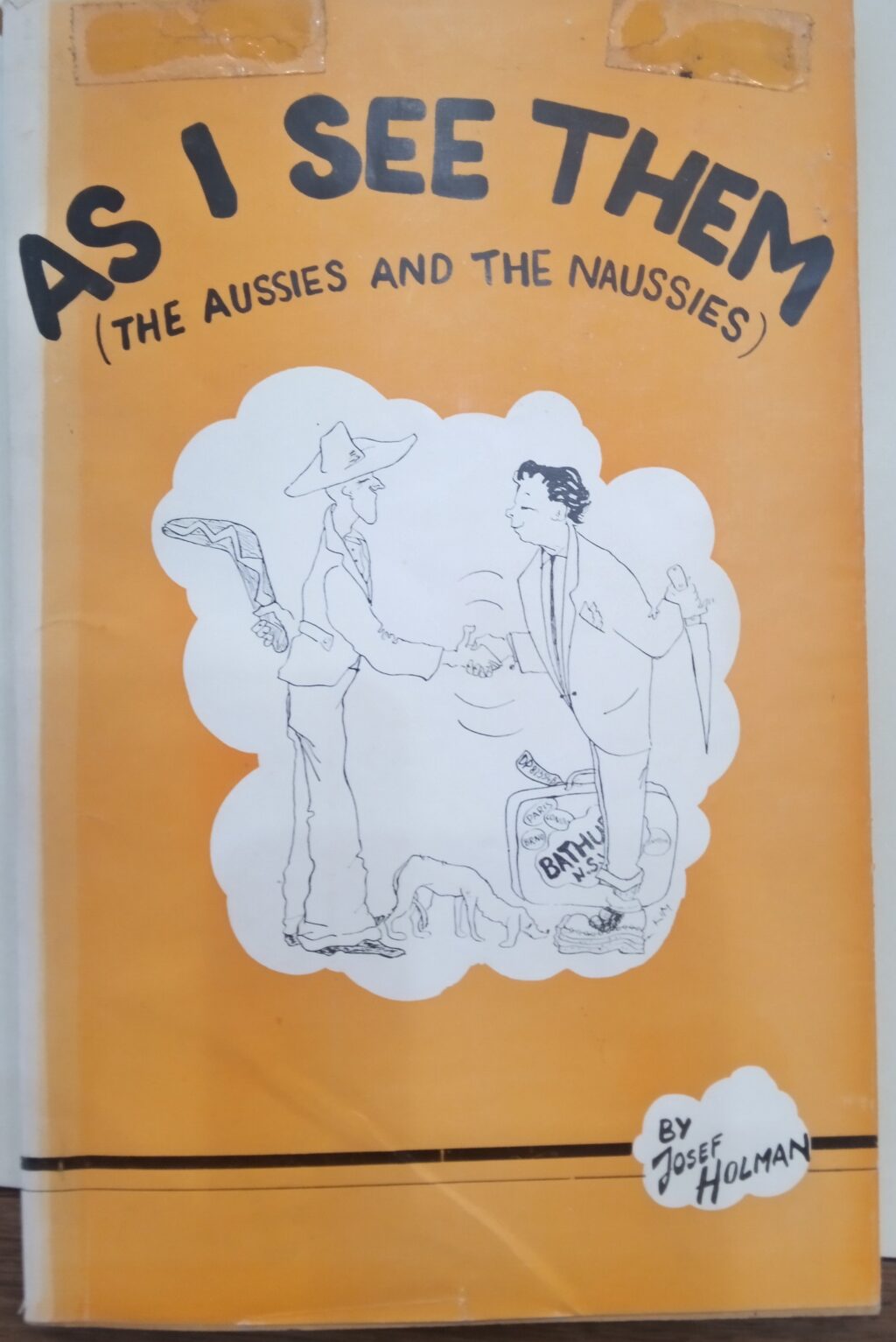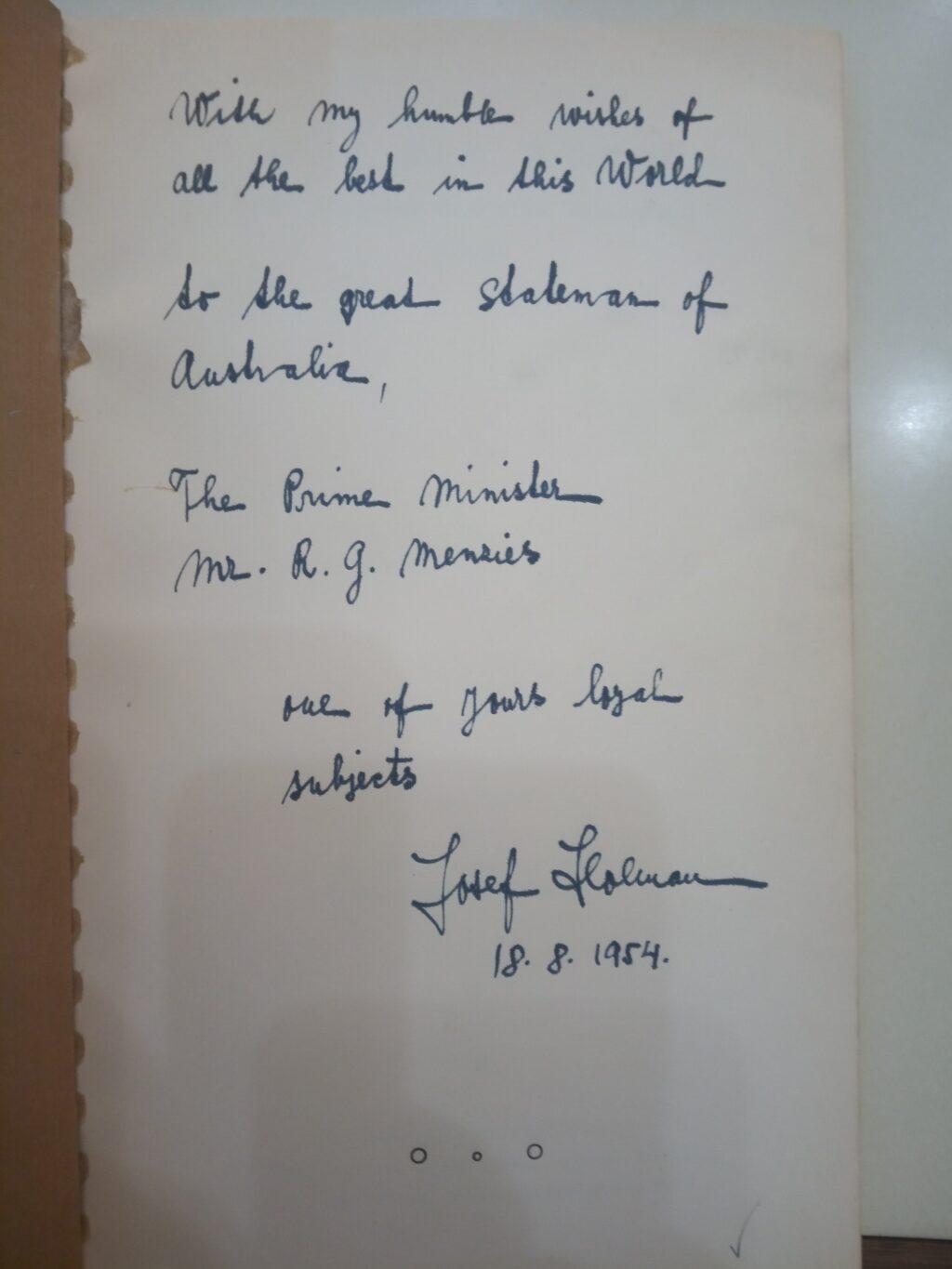Josef Holman, As I See Them (The Aussies and the Naussies) (1954)
Josef Holman was a Czech writer and journalist who came to Australia amidst the post-war immigration boom and wrote in a satirical and cutting manner about the immigrant experience. He was a pioneer of a new kind of Australian humour based off examining cultural differences and the limits of Australian social cohesion, which has since grown hand in hand with Australia’s multiculturalism.
Holman’s biographical information comes from a 1953 Sun-Herald article entitled ‘The Story of a New Australian’, though Holman was a gifted storyteller and some of the heightened details of his past are difficult to verify. Born in Prague in 1928, he witnessed the Nazi invasion of his homeland when he was just 10 years old and remembered crying in the streets along with his parents. After the terror of years of occupation, where bombing, hunger, death and fear ‘made an iron’ out of him, at the age of 16 Holman became involved in the Czech resistance movement. As a ‘partyzan’ he assisted in attempts to blow up bridges, smuggle intelligence to the Allies, and even assassinate local German officials.
Once the war was over, Holman was decorated for his bravery but the free country he fought for was not to survive for long. In 1947 Holman finished his commercial education and travelled abroad in search of experience. While he was away the Communists seized power in the 1948 Czechoslovak coup (which Menzies’s biographer A.W. Martin cites as the main inciting incident for the decision to ban the Communist Party of Australia), and Holman became politically homeless. After a series of jobs including working as a ship’s fireman on the open sea, serving as a butler in Holland, and modelling underwear in Britain, Holman was in London when he saw a large sign advertising ‘The Country of Opportunity, Sunny New South Wales’.
When he arrived in Sydney Holman was most impressed by the quantity and the quality of the food available after years of enduring European shortages and rationing, but he was also shocked by the hostility of the locals who were cold and unwelcoming to newcomers. It was this reaction which prompted him to write As I See Them, a satirical look at the ‘new Australian’ experience originally produced in his native language.
Among the book’s observations are that Australian English was essentially a different language to British English, Sydney was then overrun with ‘bodgies’ – people who grew large side-burns and slicked back their hair in emulation of 50s American culture, that our ‘national meal’ was steak and egg, and that Aussie men were too busy with beer and football to care about romance.
The book is a fascinating cultural artefact of a watershed moment in Australian history, when the doors of ‘white Australia’ were first beginning to be pried open. Despite their initial hostility, Holman suggested that the ‘old Australians’ were slowly getting used to their new compatriots and that things were gradually improving even in the few short years that he had been here.
He nevertheless remained bitter about certain things, mostly the fact that the local women seemed to be romantically uninterested in migrants. Many of Holman’s observations were made in King’s Cross, dubbed ‘the dirty mile’, and sexual themes feature prominently. The book shifts back and forth between the positive and the negative aspects of Holman’s new country, but it ends on something of a sad note as he admits that ‘my life in Australia is a very lonely one’.
The book received mixed reviews among immigrant groups, with the Sydney Jewish News expressing concern at Holman’s attempt to speak collectively for the immigrant experience and also his strong focus on gender relations. They also complained that some of the humour was lost in the translation into English and that the book’s appeal was rather sectional.
Menzies had advocated for increasing and broadening Australia’s immigration intake while Opposition Leader, and while the heeding of his call meant that the migrant boom was begun under Chifley, the Menzies Government supported and extended it. Holman seems to have sent Menzies a copy of his book partly as a publicity stunt, as the Daily Telegraph reported that Menzies and Immigration Minister Harold Holt had received autographed copies along with ‘hand-made miniature continental cork shoes’.
However, the sentiment of Holman’s inscription to Menzies appears to be genuine, expressing the goodwill of someone who, however much they might joke, had fled communism and was glad to be in a free country even if its people were less than accommodating. It reads ‘With my humble wishes of all the best in this world to the great statesman of Australia, The Prime Minister Mr R.G. Menzies one of yours [sic] loyal subjects, Josef Holman, 18.8.1954’.
You might also like...
Sign up to our newsletter
Sign up for our monthly newsletter to hear the latest news and receive information about upcoming events.





